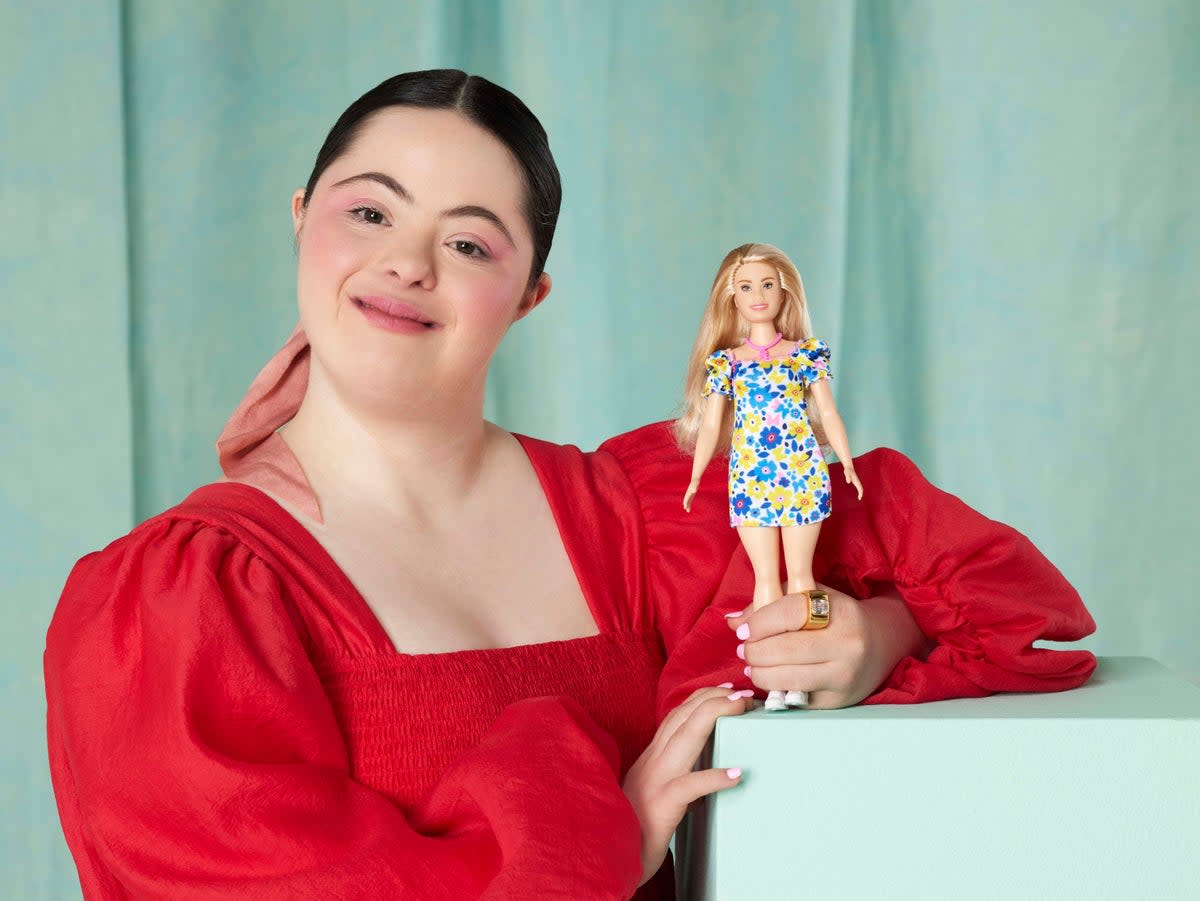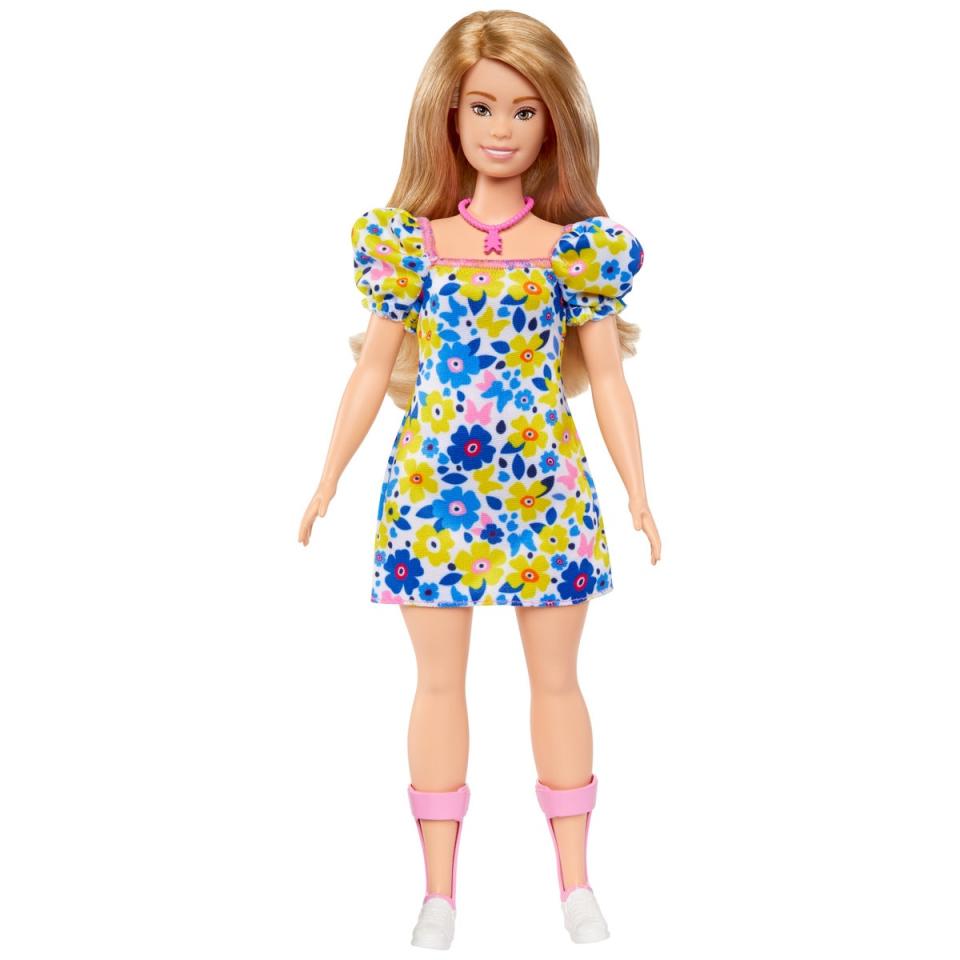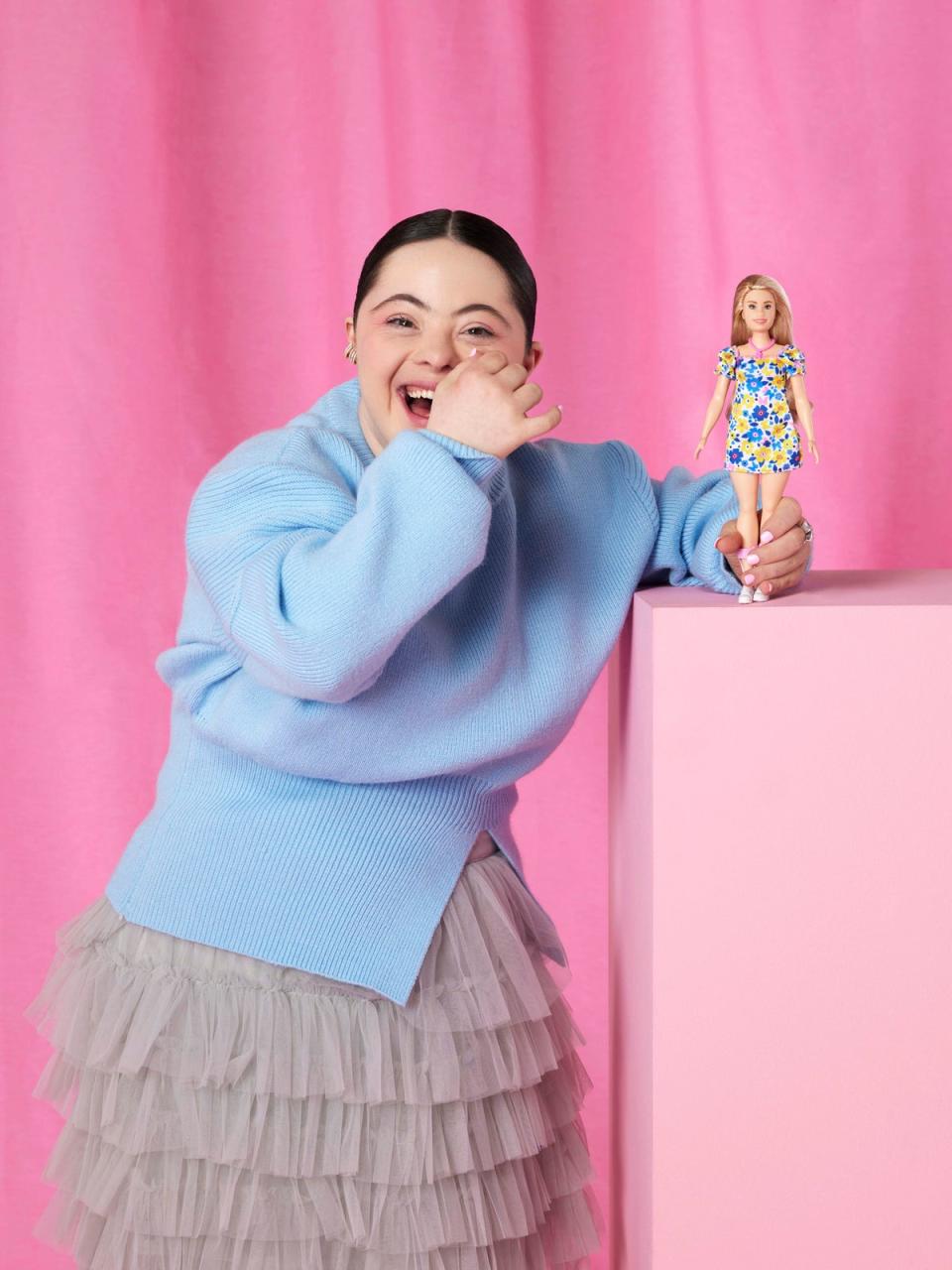Barbie introduces first-ever doll with Down’s Syndrome

The first-ever Barbie doll with Down’s Syndrome has been launched by Mattel, with disability campaigner and model Ellie Goldstein introducing her to the world.
The new doll is part of the Barbie Fashionistas line, which has introduced dolls with prosthetic limbs, hearing aids, vitiligo and other conditions in an effort to be more inclusive.
After consulting with the National Down Syndrome Society (NDSS) in the US as well as with medical professionals, the new Barbie features a new face and body shape that includes a shorter frame and longer torso.
Her face features a rounder shape, smaller ears and a flat nasal bridge, with almond-shaped eyes to be “more illustrative of women with Down’s syndrome”.
She wears a pink pendant necklace that represents the three copies of the 21st chromosome, the genetic material that is responsible for characteristics associated with the condition.
The arrows on the pendant are synonymous with “The Lucky Few”, which according to the NDSS is meant to represent the “lucky few who have someone with Down’s syndrome in their lives”.
The doll also wears a puffed sleeve dress with yellow and blue colours that represent Down’s Syndrome awareness, as well as a pink ankle foot orthotics (AFO) that is commonly used by children with the condition in the US.
Kandi Pickard, president and CEO of NDSS, said it was an “honour” to work with Barbie on the new doll.

“This means so much for our community, who for the first time, can play with a Barbie doll that looks like them,” she added.
“This Barbie serves as a reminder that we should never underestimate the power of representation. It is a huge step forward for inclusion and a moment that we are celebrating.”
The campaign to introduce the new Barbie is fronted by Goldstein, who is the UK’s most prominent model with Down’s Syndrome.
She recently appeared on the cover of British Vogue’s May issue, which features five disabled activists, models and stars including Sinead Burke and Selma Blair.

Commenting on the new doll, Goldstein said: “I am so happy that there is a Barbie with Down’s Syndrome. Seeing the doll, I felt so overwhelmed – it meant a lot to me and I’m so honoured and proud that Barbie chose me to show the doll to the world.
“Diversity is important to me as people need to see more people like me out there in the world and not be hidden away.”
Carol Boys, chief executive of the UK Down’s Syndrome Association, said it was “pleased” to see the doll’s debut.
“As the only charity in the UK supporting all aspects of Down’s Syndrome, we often hear from families who feel their children are not represented enough in the mainstream media,” she said.
“We therefore welcome the fact that children in our community will be able to play with a doll that represents them and their lives. We look forward to seeing her on the shelves alongside Barbies who wear hearing aids, use wheelchairs, and celebrate inclusion.”

